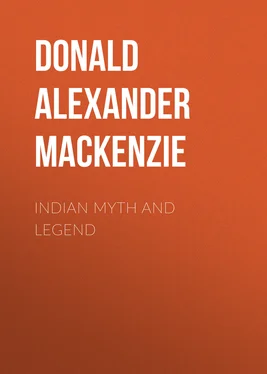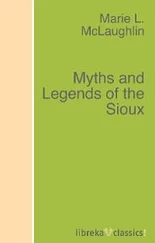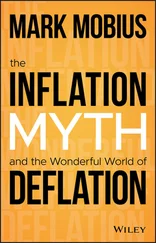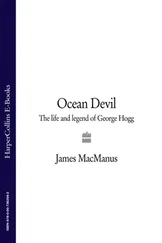Donald Alexander Mackenzie - Indian Myth and Legend
Здесь есть возможность читать онлайн «Donald Alexander Mackenzie - Indian Myth and Legend» — ознакомительный отрывок электронной книги совершенно бесплатно, а после прочтения отрывка купить полную версию. В некоторых случаях можно слушать аудио, скачать через торрент в формате fb2 и присутствует краткое содержание. Жанр: foreign_prose, foreign_religion, Философия, Мифы. Легенды. Эпос, foreign_psychology, foreign_antique, на английском языке. Описание произведения, (предисловие) а так же отзывы посетителей доступны на портале библиотеки ЛибКат.
- Название:Indian Myth and Legend
- Автор:
- Жанр:
- Год:неизвестен
- ISBN:нет данных
- Рейтинг книги:4 / 5. Голосов: 1
-
Избранное:Добавить в избранное
- Отзывы:
-
Ваша оценка:
- 80
- 1
- 2
- 3
- 4
- 5
Indian Myth and Legend: краткое содержание, описание и аннотация
Предлагаем к чтению аннотацию, описание, краткое содержание или предисловие (зависит от того, что написал сам автор книги «Indian Myth and Legend»). Если вы не нашли необходимую информацию о книге — напишите в комментариях, мы постараемся отыскать её.
Indian Myth and Legend — читать онлайн ознакомительный отрывок
Ниже представлен текст книги, разбитый по страницам. Система сохранения места последней прочитанной страницы, позволяет с удобством читать онлайн бесплатно книгу «Indian Myth and Legend», без необходимости каждый раз заново искать на чём Вы остановились. Поставьте закладку, и сможете в любой момент перейти на страницу, на которой закончили чтение.
Интервал:
Закладка:
“The Assembly House of Yama, which was made by Twashtri, hath splendour equal to the sun; it shines like burnished gold. There the servants of the Lord of Justice measure out the allotted days of mortals. Great rishis and ancestors await upon Yama, King of the Pitris (fathers), and adore him. Sanctified by holiness, their shining bodies are clad in swan-white garments, and decked with many-coloured bracelets and golden ear-rings. Sweet sounds, alluring perfumes, and brilliant flower garlands make that building ever pleasant and supremely blest. Hundreds of thousands of saintly beings worship the illustrious King of the Pitris.
“The heaven of Indra was constructed by the great artisan-god himself. Like a chariot it can be moved anywhere at will. The Assembly House has many rooms and seats, and is adorned by celestial trees. Indra sits there with his beautiful queen, wearing his crown, with gleaming bracelets on his upper arms; he is decked with flowers, and attired in white garments. He is waited upon by brilliant Maruts, and all the gods and the rishis and saints, whose sins have been washed off their pure souls, which are resplendent as fire. There is no sorrow, or fear, or suffering in Indra's abode, which is inhabited by the spirits of wind and thunder, fire and water, plants and clouds, and planets and stars, and the spirits also of Prosperity, Religion, Joy, Faith, and Intelligence. Fairies and elves (Apsaras and Gandharvas) dance and sing there to sweet music; feats of skill are performed by celestial battle heroes, auspicious rites are also practised. Divine messengers come and go in celestial chariots, looking bright as Soma himself.
“The heaven of Varuna was constructed by Vishwakarman (Twashtri) within the sea. Its walls and arches are of pure white, and they are surrounded by celestial trees, made of sparkling jewels, which always blossom and always bear fruit. In the many-coloured bowers beautiful and variegated birds sing delightful melodies. In the Assembly House, which is also of pure white, there are many rooms and many seats. Varuna, richly decked with jewels and golden ornaments and flowers, is throned there with his queen. Adityas 111wait upon the lord of the waters, as also do hooded snakes (Nagas) with human heads and arms, and Daityas and Danavas (giants and demons) who have taken vows and have been rewarded with immortality. All the holy spirits of rivers and oceans are there, and the holy spirits of lakes and springs and pools, and the personified forms of the points of the heavens, the ends of the earth, and the great mountains. Music and dances provide entertainment, while sacred hymns are sung in praise of Varuna.”
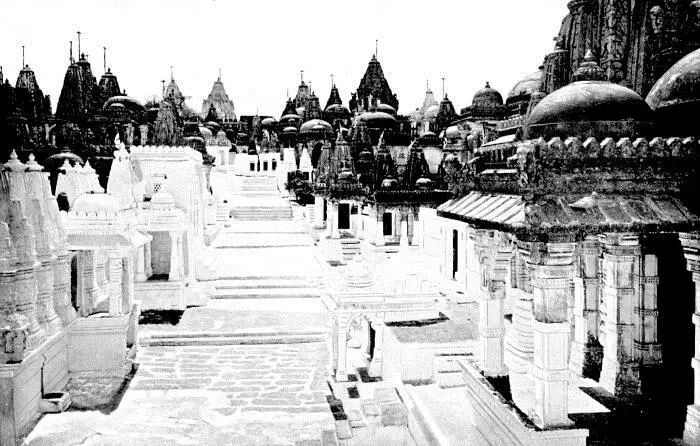
12
THE CITY OF THE GODS, PALITANA
These heavens recall the Grecian “Islands of the Blest” and the Celtic Otherworld, where eternal summer reigns, trees bear blossoms and fruit continually, and there is no wasting with age. Indra's Assembly House is slightly reminiscent of the Teutonic Valhal, but is really more like the gardens of the underworld Hela. The Indian heroes do not feast on pork like those of Teutonic and Celtic myth; in the Assembly House of Kuvera, god of wealth, however, fat and flesh are eaten by fierce sentinel dwarfs. The fairy-like Apsaras are wooed by Indra's favoured warriors as well as by the gods.
One of the conditions which secured entry to the heaven of Yama was that a man should have offspring. A rishi, named Mandapala, devoted himself to religious vows and the observance of great austerities, but when he reached the region of the Pitris, he could not obtain “the fruit of his acts”. He asked: “Why is this domain unattainable to me?”
Said the Celestials: “Because thou hast no children.... The Vedas have declared that the son rescueth the father from a hell called Put. O best of Brahmans, strive thou to beget offspring.” 112
A father could only reach Heaven if his son, after performing the cremation ceremony, poured forth the oblation and performed other necessary services to the dead. Consequently, all men showed great anxiety to have sons. In the Vedic period the exposure of female children was not unknown; indeed, this practice is referred to in the Yajurveda . “It is sorrowful to have a daughter,” exclaims the writer of one of the Brahmanas .
One reason for infanticide in modern India is associated with the practice of exogamy (marriage outside of one's tribe). Raids took place for the purpose of obtaining wives and these were invariably the cause of much bloodshed. In 1842 members of the Kandhs tribe told Major Macpherson “that it was better to destroy girls in their infancy than to allow them to grow up and become causes of strife afterwards”. Colonel MacCulloch, Political Agent for Manipur, stamped out infanticide in the Naga country by assuring the people of a tribe that they would be protected against the wife-hunting parties of a stronger tribe. “Many years afterwards a troop of Naga girls from the weaker tribe paid a visit of ceremony to Colonel MacCulloch, bearing presents of cloth of their own weaving in token of their gratitude to the man who had saved their lives.” 113
CHAPTER IV
Demons and Giants and Fairies
Indian Asuras as Demons—Persian Ahura a God—Indian Gods as Persian Demons—Theory of Assyrian Influence—Indra's Battle with Asuras—Like Thor's Conflict with Giants—The Sun and Moon Devourer—Giants and Demons of Ocean—The Flying City—Destruction of World by Fire—Teutonic Parallel—Serpent Demigods—Man's Special Enemies—The Corpse Eaters—Demons of Disease, Unbelief, and Robbery—Elves and Fairies—The “Good People”—Celestial Musicians and Dancing Girls—Origin of Mythical Beings—Story of a Love-sick King—His Fairy Bride—The Echoing Forest Nymph—The “Language of Birds”—Birds as Spirits and Ghosts.
The gods are the Suras and the demons the Asuras or “non-gods”. This distinction, however, did not obtain in the early Vedic period. Originally the deities, and especially Varuna and Mitra, were called Asuras, but in the later part of the Rigveda the term is applied chiefly to the enemies of the gods. In the Atharvaveda , as in subsequent Epic literature, the Asuras are simply demons and giants and goblins.
No conclusive explanation can be offered as to how this remarkable change took place in the course of the centuries embraced by the Vedic period. It may have been due primarily to sectarian strife between the religious teachers of those tribes which had been influenced by Babylonian modes of thought and those which clung tenaciously to the forms of primitive Aryan nature worship, and perhaps also the worship of ancestors (Pitris). In the old Persian language, which, like Greek, places “h” before a vowel where “s” is used in Sanskrit, Ahura ( = Asura) signifies “god”. The Zoroastrian chief god is called Ahura-Mazda, “the wise Lord”, as Varuna is addressed in early Rigvedic hymns, “wise Asura and King”, and “the all-knowing Asura who established the heavens and fixed the limits of the earth”. On the other hand “daeva” in the Iranian dialect, which is cognate with Sanskrit “deva”, “god”, came to mean “demon”. “Asura” is derived from the root “asu”, which signifies “the air of life”, and “deva” from “div”, “to shine”, or “deiwo”, “heavenly”.
The view has been urged that the revolt against “Asura” in India was due to the hatred cherished towards the Persians who had become subject to the Assyrians, the worshippers of Ashur. It was originally based on the assumption that Assyrian aggression caused the migration of Aryan tribes towards India. Subsequent research, however, has tended to dispel this theory. It has been found, for instance, that Aryans were associated with the Kassites who overthrew the Hammurabi dynasty of Babylon prior to the invasion of the Punjab, and that the Assyrians were for a period vassals of the Mitanni kings, who had Aryan names and worshipped Indra, Varuna, and Mithra in Mesopotamia and Asia Minor. The weak point in the Ashur-Asura theory is that it throws no light on the process which caused the Persian “daeva” to be applied to demons instead of to gods. How the gods of the Indian Aryans became the demons of Persia and the demons of Persia became the gods of India is a problem for which a solution has yet to be found.
Читать дальшеИнтервал:
Закладка:
Похожие книги на «Indian Myth and Legend»
Представляем Вашему вниманию похожие книги на «Indian Myth and Legend» списком для выбора. Мы отобрали схожую по названию и смыслу литературу в надежде предоставить читателям больше вариантов отыскать новые, интересные, ещё непрочитанные произведения.
Обсуждение, отзывы о книге «Indian Myth and Legend» и просто собственные мнения читателей. Оставьте ваши комментарии, напишите, что Вы думаете о произведении, его смысле или главных героях. Укажите что конкретно понравилось, а что нет, и почему Вы так считаете.
